




Having clean windows not only enhances the overall appearance of your home or office, but also improves the quality of light and your ability to enjoy the view outside. However, knowing how often to clean your windows can be a bit tricky, as it depends on various factors such as the location of your property, the surrounding environment, and your personal preferences.
In general, it is recommended to clean the inside of your windows at least once every three to six months. This timeframe allows for the removal of dust, dirt, and smudges that accumulate over time without allowing them to become too stubborn to clean. Regular cleaning also prevents the build-up of grime that can be much more difficult to remove if left unattended for extended periods.
However, if you live in an area with high pollution, near a construction site, or have pets and children who often touch the windows, you may need to clean them more frequently. These factors can lead to faster accumulation of dirt or smudges on your windows, requiring more frequent cleaning to maintain a clear view.
It’s also important to consider the seasons when planning your window cleaning schedule. If you live in an area with distinct seasons, you may find that cleaning your windows more frequently during the spring and summer months is necessary, as these seasons tend to bring more dust, pollen, and insects that can cling to your windows.
In addition to regular cleaning, it’s a good idea to keep an eye out for any specific issues that may require immediate attention. For example, if you notice hard water stains, mold, or mildew on your windows, it’s important to address these issues promptly, as they can not only negatively impact the appearance of your windows, but also affect their functionality and longevity.
How Often Should I Clean Inside Windows?
Keeping the inside of your windows clean is not only important for aesthetic reasons, but also for maintaining a clear view and maximizing natural light in your home. The frequency with which you should clean your inside windows may vary depending on various factors, such as location, weather conditions, and personal preference. However, a general guideline to follow is to clean your inside windows at least every 2-3 months.
Factors to Consider
- Location: If you live in an area with high levels of pollution, smog, or dust, you may need to clean your inside windows more frequently. Urban areas and locations near industrial sites or construction zones tend to accumulate more dirt and grime on windows.
- Weather Conditions: Extreme weather conditions, such as heavy rain or strong winds, can leave dirt and debris on your windows. If you experience severe weather frequently, you may need to clean your windows more often.
- Indoor Activities: The activities you do inside your home can also affect how often you need to clean your inside windows. For example, if you often cook or smoke indoors, the windows may accumulate more grease and residue, requiring more frequent cleaning.
- Personal Preference: Some individuals may simply prefer having spotless windows and might choose to clean them more often, regardless of other factors.
Benefits of Regular Cleaning
Regularly cleaning your inside windows offers several benefits:
- Clearer View: Dust, fingerprints, and smudges can hinder your view and make it more difficult to enjoy the scenery outside your windows. Regular cleaning ensures a clear and unobstructed view.
- Maximized Natural Light: Clean windows allow more natural light to enter your home, creating a brighter and more inviting atmosphere.
- Improved Indoor Air Quality: Dirty windows can contribute to decreased indoor air quality by trapping dust and allergens. Regular cleaning helps remove these pollutants and improves the air you breathe.
- Enhanced Aesthetics: Clean windows contribute to an overall clean and polished look for your home’s interior.
Cleaning Tips
When cleaning your inside windows, consider the following tips:
- Use the right tools: Use a microfiber cloth or a squeegee to clean your windows effectively. Avoid using abrasive materials or ammonia-based cleaners, as they can damage the glass.
- Clean in the right conditions: Choose a cloudy day or a time when the sun is not directly shining on the windows to prevent streaks and make the cleaning process easier.
- Start from the top: Begin cleaning the windows from the top and work your way down to avoid dripping cleaning solution onto areas you have already cleaned.
- Pay attention to corners and edges: These areas tend to accumulate more dirt and grime, so make sure to give them extra attention during the cleaning process.
Conclusion
Regularly cleaning your inside windows is essential for maintaining a clear view, maximizing natural light, and improving the overall look and air quality of your home. By considering factors such as location, weather conditions, and personal preferences, you can determine the appropriate frequency for cleaning your inside windows.
The Importance of Regular Window Cleaning
Regular window cleaning is an essential part of maintaining a clear view and a clean living environment. Clean windows not only enhance the aesthetic appeal of your home or office but also offer numerous other benefits.
Enhances the Appearance of Your Space

Clean windows can make a significant difference in the overall appearance of your space. They allow more natural light to enter, making the room feel brighter and more inviting. This can greatly improve the ambiance of your home or office.
Improves Indoor Air Quality
Windows can accumulate and hold onto dirt, dust, pollen, and other allergens over time. Regular cleaning helps remove these particles, improving the indoor air quality in your space. This can be especially beneficial for individuals with allergies or respiratory issues.
Extends the Lifespan of Your Windows
Regular window cleaning can help prolong the lifespan of your windows. Dirt, grime, and debris can scratch and damage the glass surface over time. By keeping your windows clean, you can prevent this damage and maintain their structural integrity.
Prevents Hard Water Stains
Hard water stains can be unsightly and difficult to remove. These stains are caused by mineral deposits left behind by water. Regular window cleaning can help prevent the buildup of these deposits, keeping your windows crystal clear and free from stains.
Allows for Better Energy Efficiency
Dirty windows can have a negative impact on energy efficiency. They can block natural light and hinder the transfer of heat, leading to higher energy costs. By regularly cleaning your windows, you can maximize the amount of natural light entering your space and improve energy efficiency.
Keeps Your View Clear
One of the primary reasons to clean your windows is to maintain a clear view. Dust, smudges, and dirt can obstruct your view and make it difficult to enjoy the scenery outside. Regular cleaning ensures that you always have a clear and unobstructed view.
Increases the Lifespan of Window Treatments
Clean windows can also help prolong the lifespan of your window treatments, such as curtains, blinds, or shades. Over time, dirt and grime can accumulate on these treatments, causing them to deteriorate faster. By keeping your windows clean, you can reduce the wear and tear on your window treatments.
Boosts Property Value
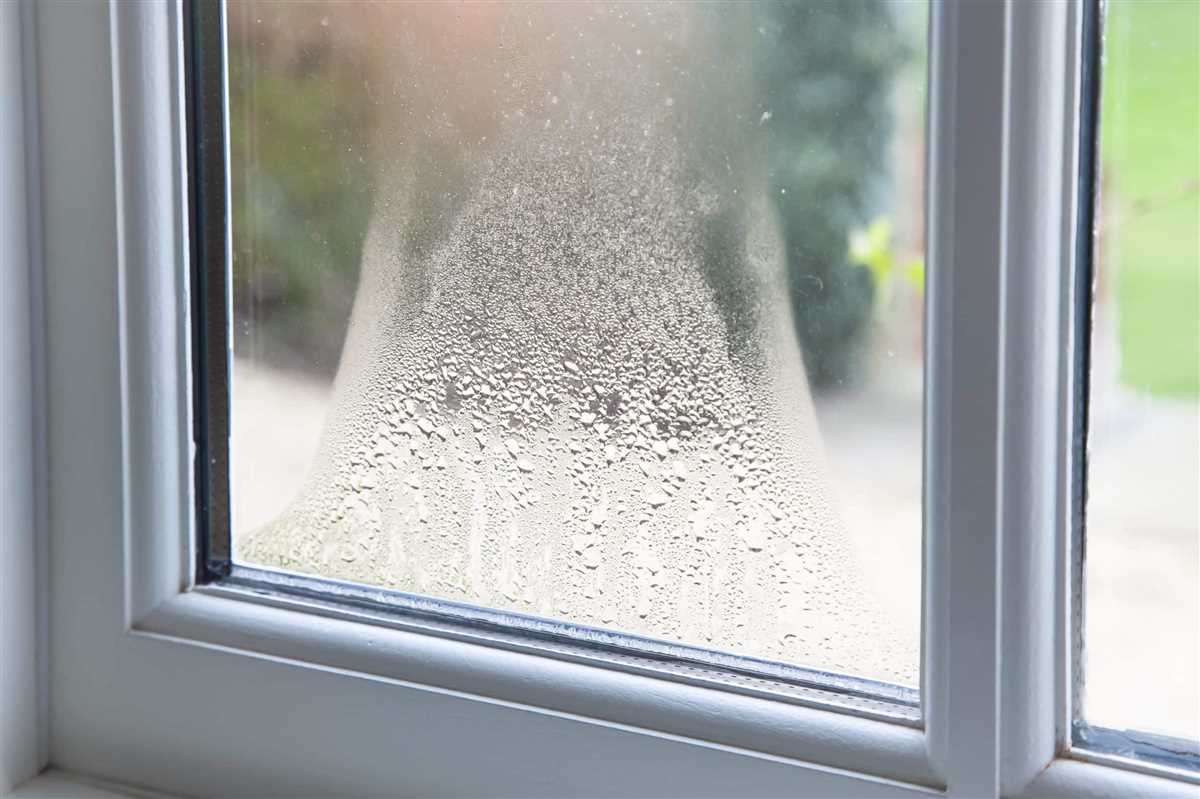
If you’re planning to sell your home or commercial property, clean windows can significantly boost its overall value. Potential buyers are more likely to be attracted to a property with well-maintained windows, as they contribute to a positive first impression.
In conclusion, regular window cleaning is not just about maintaining a clear view. It has numerous benefits, such as enhancing the appearance of your space, improving indoor air quality, extending the lifespan of your windows, preventing hard water stains, increasing energy efficiency, keeping your view clear, increasing the lifespan of window treatments, and boosting property value. Make window cleaning a regular part of your cleaning routine to enjoy these benefits and create a clean, inviting atmosphere in your home or office.
Factors to Consider for Cleaning Frequency
Cleaning your windows regularly is essential for maintaining a clear view and a pleasant living environment. The frequency at which you should clean your windows depends on several factors:
- Location: The location of your home or office building can significantly affect how often you need to clean your windows. If you live in a city or an area with heavy traffic, your windows may accumulate more dirt and grime, requiring more frequent cleaning.
- Weather: Different weather conditions can impact the cleanliness of your windows. If you experience frequent rain or windstorms, you may need to clean your windows more often to remove water spots or debris.
- Indoor activities: If you smoke indoors, cook frequently, or have pets, your windows may accumulate more dirt, fingerprints, and pet hair. In such cases, cleaning them more often is advisable.
- Allergies: If you or someone in your household suffers from allergies, keeping your windows clean can help reduce the presence of allergens like pollen, dust, and mold spores. Consider cleaning your windows more frequently during allergy seasons.
- Aesthetic preferences: Some people simply enjoy having spotless windows and prefer to clean them more frequently for aesthetic reasons. If having crystal-clear windows is important to you, you may want to clean them more often.
Ultimately, the decision of how often to clean your windows will depend on a combination of these factors. Assess your specific situation and consider the cleanliness and appearance of your windows to determine the appropriate cleaning frequency for you. In general, cleaning your windows every 2-3 months is a good starting point, and you can adjust the frequency based on your unique circumstances.
Signs It’s Time for a Window Cleaning
1. Dirty and Smudged Glass:
If you notice that your windows have become dirty and smudged, it’s a clear sign that it’s time for a window cleaning. Dust, dirt, fingerprints, and other debris can accumulate on the surface of the glass, affecting the clarity and obstructing your view. Regular cleaning will help restore the glass’s transparency and maintain a clear view.
2. Water Stains:
Water stains on your windows can be unsightly and can make it harder to see through the glass. These stains are often caused by hard water or minerals in the water that can leave behind deposits when it evaporates. If you notice water stains on your windows, it’s time to give them a thorough cleaning to remove the stains and restore the clarity of the glass.
3. Buildup of Dust and Pollen:
Over time, dust and pollen can accumulate on the windowsills and frames, as well as on the glass itself. This buildup not only affects the appearance of your windows but can also impact the air quality in your home. Regular cleaning will help remove allergens and improve the overall cleanliness of your windows.
4. Insect Residue:
If you often find dead insects stuck to your windows or notice marks and residue left behind by crawling or flying insects, it’s a sign that your windows need cleaning. Removing these marks and residues will enhance the aesthetic appeal of your windows and prevent further buildup.
5. Reduced Natural Light:
If you feel like your rooms have become darker or less bright, it could be due to dirty windows. Dust and grime on the glass can prevent sunlight from entering your home, reducing the amount of natural light available. Cleaning your windows regularly will allow more light to filter through, making your rooms feel brighter and more inviting.
6. Visible Cobwebs and Dirt:
If you can spot cobwebs, dirt, or other visible debris around the corners and edges of your windows, it’s a clear indication that a thorough cleaning is needed. Removing these contaminants will help improve the overall cleanliness and appearance of your windows.
7. Streaks and Smears:
If you’ve tried to clean your windows but are left with streaks and smears on the glass, it’s time for a professional window cleaning. These streaks can occur due to ineffective cleaning methods or using the wrong cleaning solutions. A professional cleaner will have the necessary tools and expertise to clean your windows without leaving streaks.
| Signs | What They Indicate |
|---|---|
| Dirty and Smudged Glass | Loss of clarity and obstructed view |
| Water Stains | Unsightly stains and reduced visibility |
| Buildup of Dust and Pollen | Poor air quality and dirty appearance |
| Insect Residue | Visual blemishes and possible pest presence |
| Reduced Natural Light | Darker rooms and less inviting atmosphere |
| Visible Cobwebs and Dirt | Unsightly appearance and lack of cleanliness |
| Streaks and Smears | Ineffective cleaning and need for professional help |
DIY Window Cleaning Tips

1. Gather Your Supplies
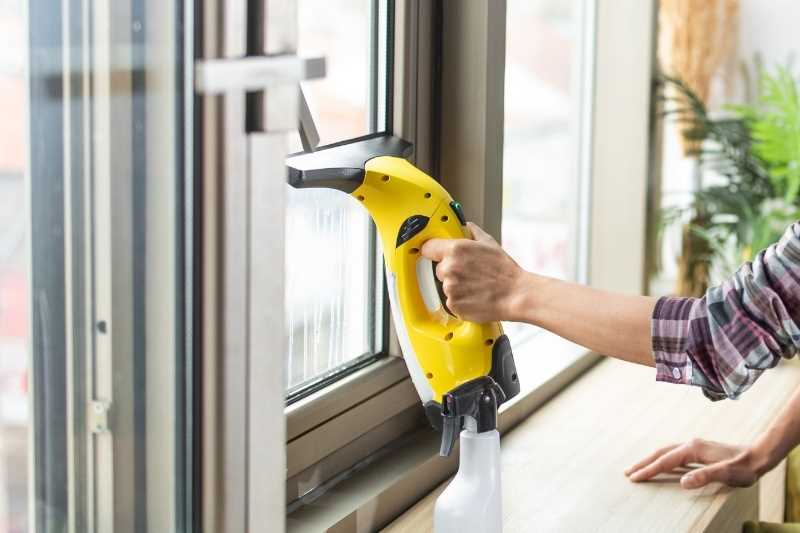
Before you start cleaning your windows, make sure you have all the necessary supplies:
- Glass cleaner
- Microfiber cloths or lint-free towels
- Squeegee
- Bucket
- Water
- Vinegar (optional)
2. Remove Dust and Debris
Start by removing any dust and debris from the windows. Use a dry cloth or a soft brush to gently sweep away the dirt. This step will prevent scratching the glass when you start cleaning.
3. Prepare the Cleaning Solution
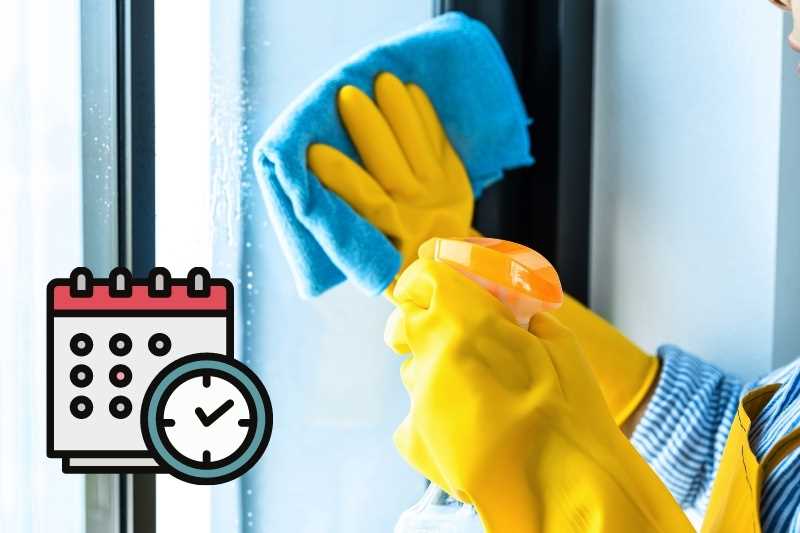
You can either use a commercial glass cleaner or make your own solution with water and vinegar. Mix equal parts water and vinegar in a bucket. Vinegar works well for removing stubborn stains and leaving your windows sparkling clean.
4. Start Cleaning
Dip your microfiber cloth or lint-free towel into the cleaning solution and wring out any excess liquid. Wipe the window from top to bottom, making sure to cover the entire surface. For better results, clean the window in a circular motion.
5. Use a Squeegee
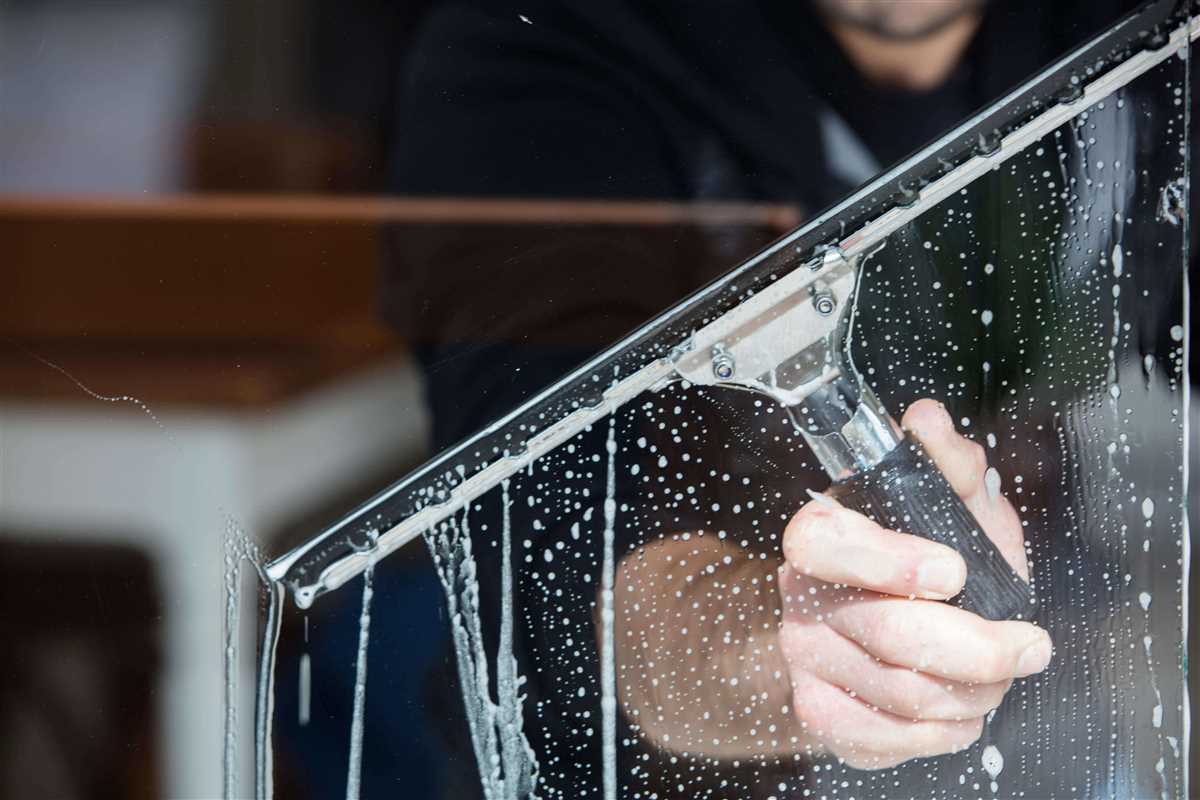
After you have wiped the window with the cloth, use a squeegee to remove the excess cleaning solution. Start at the top of the window and pull the squeegee down in a straight line. Wipe the squeegee blade with a cloth after each pass to avoid streaks.
6. Dry the Window
Use a clean, dry cloth to wipe away any remaining moisture on the window. Make sure to pay attention to the edges and corners. This step will help prevent streaks and water marks.
7. Clean the Window Frames and Sills

Don’t forget to clean the window frames and sills as well. Use a separate cloth or brush to remove any dirt or grime. Wipe them down with a mixture of soapy water and rinse thoroughly.
8. Repeat Regularly
To maintain clean windows, it’s recommended to clean them at least twice a year. However, if your windows are exposed to heavy dirt or are in high-traffic areas, you may need to clean them more often.
9. Consider Professional Cleaning
If you don’t have the time or resources to clean your windows yourself, consider hiring a professional window cleaning service. They have the expertise and equipment to ensure a thorough and streak-free cleaning.
| # | Steps |
|---|---|
| 1 | Gather Your Supplies |
| 2 | Remove Dust and Debris |
| 3 | Prepare the Cleaning Solution |
| 4 | Start Cleaning |
| 5 | Use a Squeegee |
| 6 | Dry the Window |
| 7 | Clean the Window Frames and Sills |
| 8 | Repeat Regularly |
| 9 | Consider Professional Cleaning |
Professional Window Cleaning Services

Keeping your windows clean is essential for maintaining a clear view and a well-maintained home or office. While you can certainly clean your windows on your own, hiring a professional window cleaning service can offer many advantages. Here are some reasons why you should consider hiring professional window cleaners:
1. Expertise and Experience
Professional window cleaners have the knowledge and experience to clean windows effectively and efficiently. They are trained in various window cleaning techniques and are familiar with different types of windows and their specific cleaning requirements. By hiring professionals, you can trust that your windows will be cleaned to the highest standard.
2. Safety
Window cleaning can be a dangerous task, especially when dealing with windows at larger heights or hard-to-reach areas. Professional window cleaners are equipped with the necessary tools and equipment to safely clean windows at any height. They are trained in proper safety procedures and use harnesses, ladders, and other safety measures to ensure their own safety and the safety of your property.
3. Time and Efficiency
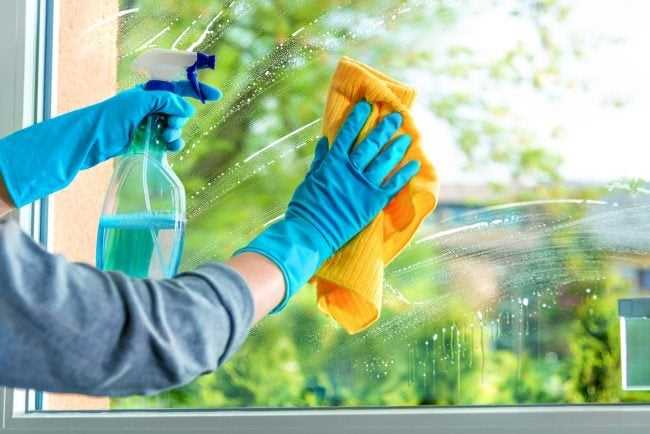
Cleaning windows can be a time-consuming task, especially when you have to clean hard-to-reach areas or larger windows. Professional window cleaners have the expertise and efficient cleaning techniques to complete the job quickly and effectively. By hiring professionals, you can save your valuable time and enjoy clean windows without the hassle.
4. Equipment and Products
Professional window cleaners have access to high-quality cleaning equipment and products that are not readily available to the general public. They use professional-grade squeegees, scrubbers, and cleaning solutions that leave your windows sparkling clean and streak-free. The use of specialized equipment and products ensures better results compared to DIY cleaning methods.
5. Regular Maintenance
By hiring professional window cleaners, you can schedule regular window cleaning appointments for ongoing maintenance. Regular window cleaning helps to prevent dirt, grime, and mineral deposits from building up on your windows, ensuring they stay clean and clear for longer periods. Regular maintenance also extends the lifespan of your windows by preventing damage caused by dirt and other contaminants.
Overall, hiring professional window cleaning services provides numerous benefits, including expertise, safety, time-saving, and access to quality equipment and products. It is a cost-effective way to maintain clean and clear windows while ensuring the longevity of your window investments.
FAQ
How often should I clean the inside of my windows?
It is recommended to clean the inside of your windows at least once every three months. However, if you live in an area with a lot of dust, pet hair, or pollen, you may need to clean them more frequently.
What should I use to clean the inside of my windows?
You can use a mixture of warm water and a mild detergent, or you can use a window cleaning solution that is specifically made for cleaning glass surfaces. It is important to avoid using abrasive cleaners or scrub brushes, as they can damage the glass.
How do I clean hard-to-reach windows?
If you have windows that are difficult to reach, you can use a telescoping tool or a window cleaning kit that includes an extendable pole. These tools will allow you to reach high windows without having to use a ladder.
What is the best technique for cleaning windows?
The best technique for cleaning windows is to start by removing any dust or debris from the glass with a soft brush or microfiber cloth. Then, apply your chosen cleaning solution to the glass and use a squeegee or lint-free cloth to remove the solution and any remaining dirt or streaks.
Do I need to clean both the inside and outside of my windows?
Yes, it is important to clean both the inside and outside of your windows for a clear view. While the inside of the windows may accumulate dust and smudges from daily activities, the outside of the windows can become dirty from pollution, rain, and other environmental factors.
How can I prevent streaks when cleaning my windows?
To prevent streaks when cleaning your windows, it is important to use a squeegee or lint-free cloth in a continuous motion, without lifting it off the glass. Additionally, make sure to dry the edges of the glass with a clean cloth to avoid water dripping down and causing streaks.
Can I use vinegar to clean my windows?
Yes, vinegar can be an effective and natural cleaner for windows. You can mix equal parts vinegar and water to create a cleaning solution. However, keep in mind that vinegar has a strong smell, so you may want to open a window or use a fan to ventilate the area while cleaning.
Is it necessary to hire professional window cleaners?
Hiring professional window cleaners is not necessary for regular maintenance. However, if you have hard-to-reach windows, or if your windows are extremely dirty or in need of repairs, it may be worth considering hiring professionals for a thorough cleaning.














